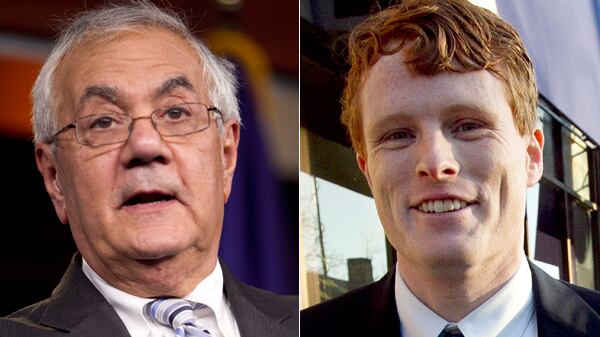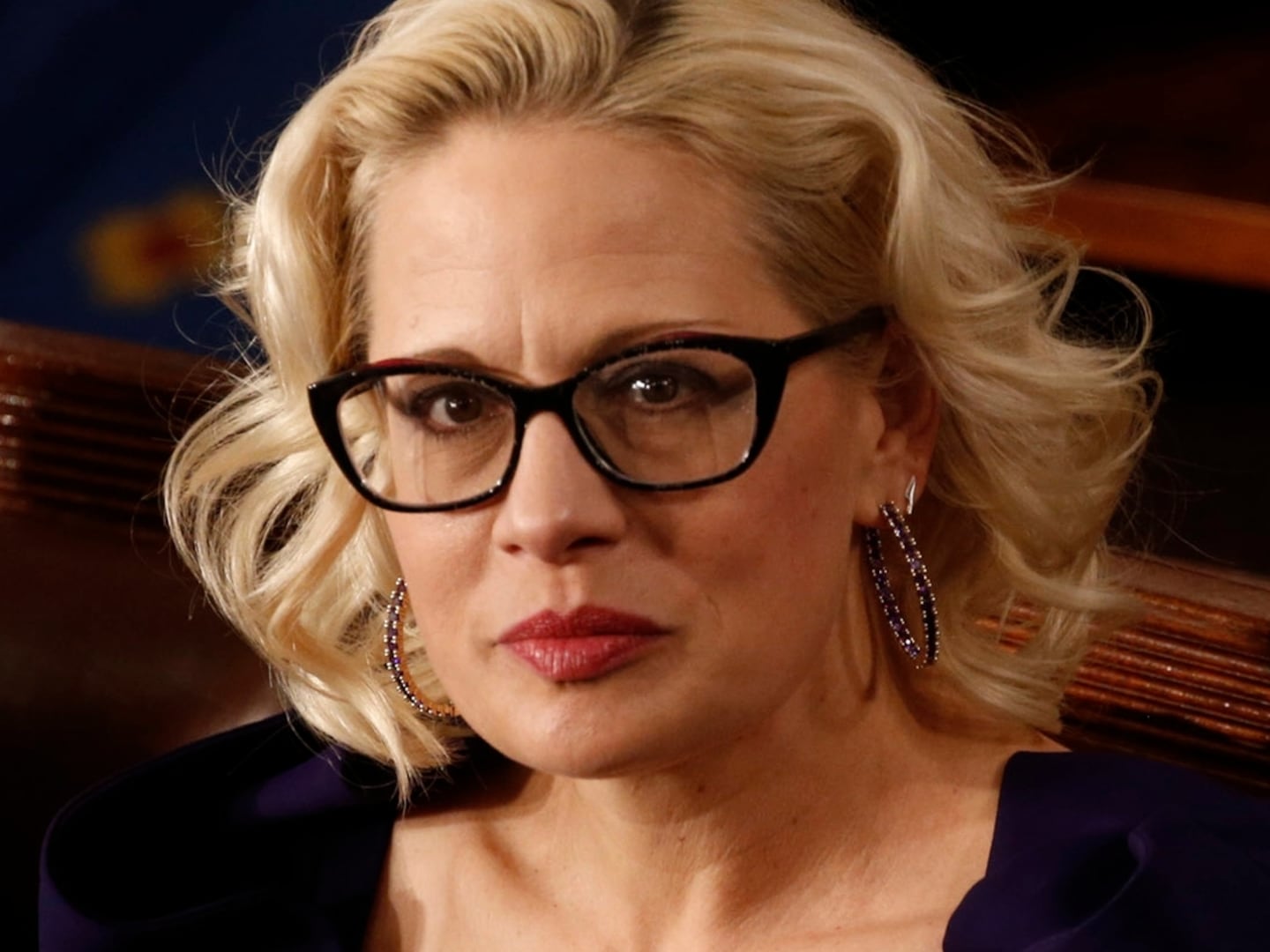Barney Frank is quick to say he would not automatically support someone because his name is Kennedy, but his long identification with the Kennedy family and its brand of liberal politics makes his endorsement pretty much a slam-dunk for Joseph P. Kennedy III.
The retiring congressman told The Daily Beast that he had been at dinner a few times with Kennedy when the young man was a surrogate for his Uncle Ted’s Senate campaign and was impressed by him—which is high praise coming from Frank, who doesn’t suffer fools gladly, if at all.
“He’s appearing to take nothing for granted, and there’s not the slightest taste of arrogance,” Frank said of Kennedy, who announced his candidacy this week. “He’s a decent, generous person.”
Frank started his political career working for Ted Kennedy’s opponent in the 1962 Democratic primary campaign for the Senate. Many liberals at the time favored Edward McCormack, a crusading attorney general, against JFK’s inexperienced kid brother. After Kennedy won and Frank was elected to the Massachusetts legislature, they worked together on a lot of issues. Frank looked to Kennedy, like most Democrats, as the leader of the liberal movement.
In 1980 when Kennedy challenged President Carter for the nomination, Frank was immediately on board with Kennedy. “He worked his heart out for Teddy for president in 1980,” recalls Bob Shrum, Kennedy’s close friend and wordsmith. Reminded of that, Frank said he remembered Carter coming to Boston after the nomination fight had been resolved, however badly. “And Teddy introduced me. He said to the president, ‘He was a great supporter of mine.’ It was not the best introduction to Carter.”

That contentious primary battle cemented Frank’s relationship with Kennedy, so much so that in that same year, 1980, when Frank was running for the first time for the House seat he would hold for more than three decades, Kennedy broke his rule never to endorse in primaries and campaigned for Frank and another Democrat, Jim Shannon, who were under fire from the Catholic Church for their views on abortion rights. Cardinal Umberto Medeiros, the former archbishop of Boston, said it was “an occasion of sin to vote for either of us,” Frank recalled.
Frank was a candidate in the Democratic primary to replace Father Robert Drinan, who was not running for reelection after the church threatened to defrock him if he remained in office. Anti-abortion Democrats were on the ballot in both Frank and Shannon’s primary races—“one for each of us,” Frank says. When both men emerged victorious, a newspaper headline blared, “Teddy 2; Cardinal nothing.” And that’s how Frank’s 32 years in Congress began, with a boost from a Kennedy.
Aside from the views they championed, they had another thing in common: strong and long-lived mothers. Elsie Frank was well known as an activist for the elderly until she died a few years ago at 92. Rose Kennedy lived to be 104. “He would tease my mother and say, ‘How’s that nice, young Elsie Frank?’”
Until Republican Scott Brown won Ted Kennedy’s seat in a 2010 upset, the Massachusetts delegation was all Democrats. And until Rep. Patrick Kennedy stepped down from his House seat two years ago, there was always a Kennedy in the Congress since 1947. This latest Kennedy, while drawing some mockery in Massachusetts, has a stellar résumé: Stanford, Peace Corps, Harvard Business School, district attorney’s office in Massachusetts. His twin brother, Matthew, equally accomplished, is serving in the Obama administration. Their father, Joseph Kennedy II, was elected to the House in 1986, where he served with Frank on the Financial Services Committee. They worked together on affordable housing, and Frank endorsed him for governor of Massachusetts, though he dropped out of the race at the state convention.
Last year, when Frank had a conservative challenger who forced him to raise more money than he had in the past and campaign more aggressively, Vicki Kennedy, the senator’s widow, campaigned for him. These ties, taken together, guarantee nothing and signify everything.






